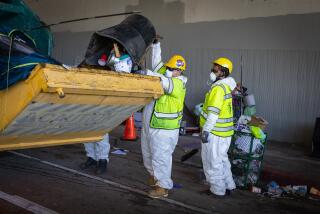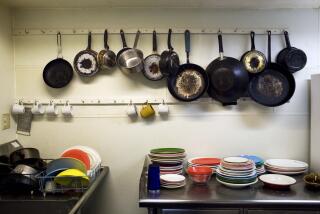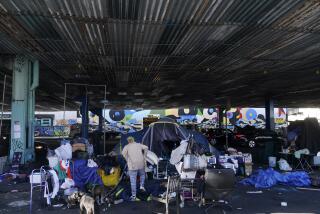With a coronavirus rate near zero, Taiwanese take to camping in the great indoors
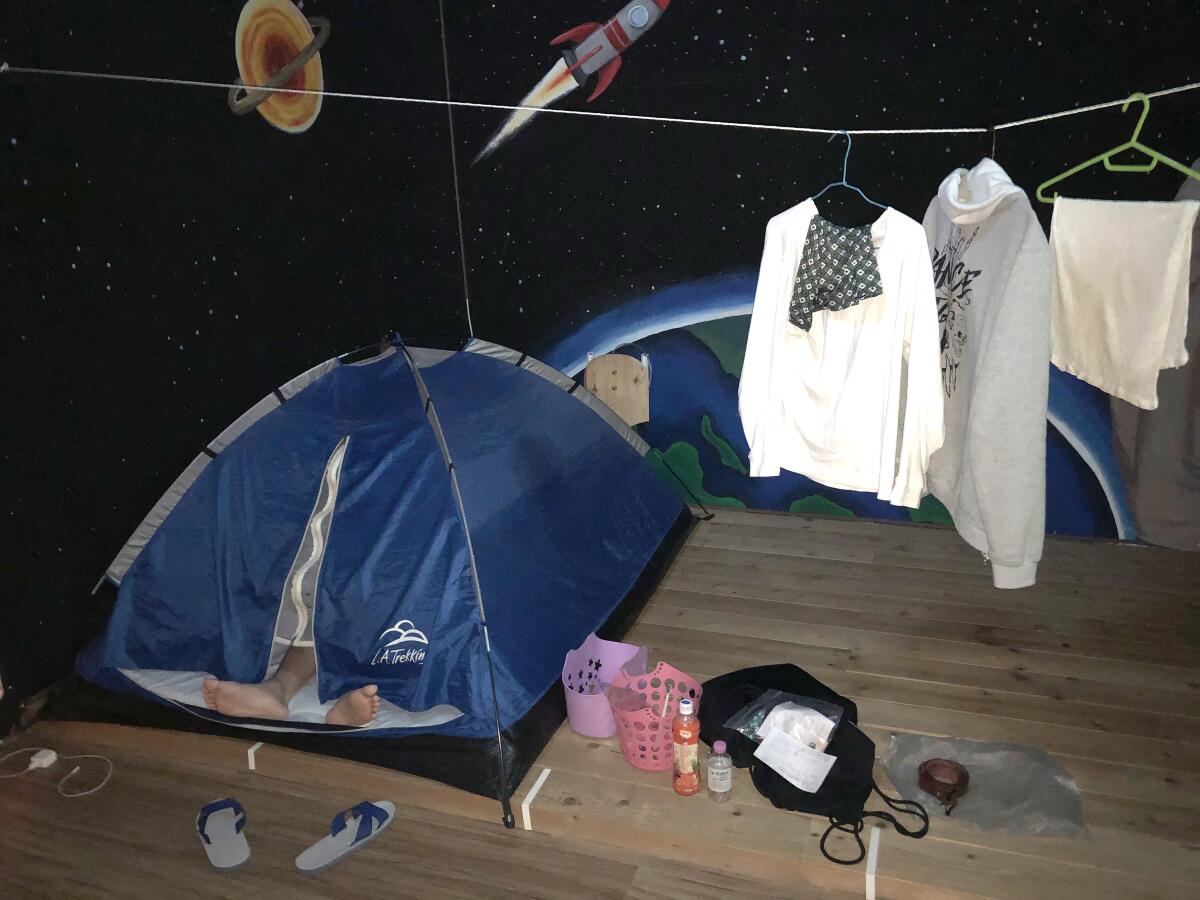
Yeh Shu-chi and her two children once camped in the mountains of central Taiwan. Their drive up a dirt road to the campground was so harrowing, Yeh recalls, that she hasn’t tried it again.
Moreover, what if the raging river near their campsite swallowed her 7-year-old son or 12-year-old daughter? “High water is a matter of safety and there’s no way around it,” the 42-year-old housekeeper said.
Yet when the trio found themselves with time on their hands earlier this year as Taiwan delayed the start of the school semester to combat the spread of the coronavirus, their thoughts turned back to camping. And one Wednesday night, they camped again — in an auditorium-sized room with tents spaced out in deference to social distancing standards.
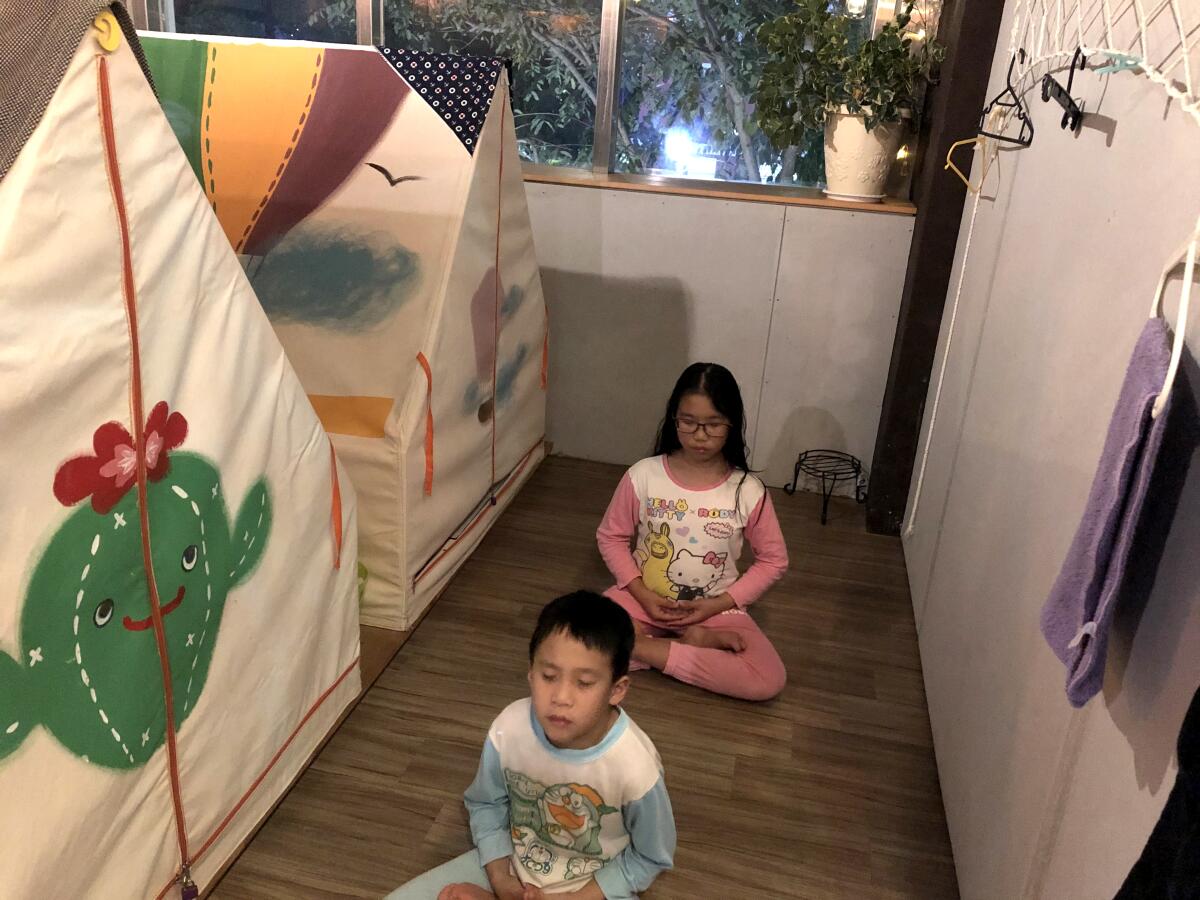
In recent years, camping in the great indoors has become increasingly popular in Taiwan. And with the coronavirus transmission rate one of the world’s lowest — fewer than 500 confirmed cases and seven deaths all year on an island of nearly 24 million citizens — the idea of avoiding dirt and water in many cases trumps the concept of avoiding congregating indoors.
More than 60% of the roughly 250,000 monthly campers in Taiwan spend their nights in tents between walls or otherwise under a roof, according to Wang Hong-hsu, chairman of the International Camping Assn. in Taiwan. And even in the era of the coronavirus, he said, indoor camping nights rose by 4% this spring compared with the same period last year.
Taiwanese citizens continue to wear face masks on trains and in crowded Taipei shopping malls. But they appear less concerned about going maskless when camping indoors because of the size and ventilation of the enclosures.
At some otherwise outdoor campgrounds, dozens of tents are spaced out under roofs supported by poles. In big cities, tents have been set up inside large multilevel buildings, including the 4,376-square-foot third floor of a white-walled office building in the industrial city of Kaohsiung where Yeh and her children hopped on an elevator to get to their accommodations.
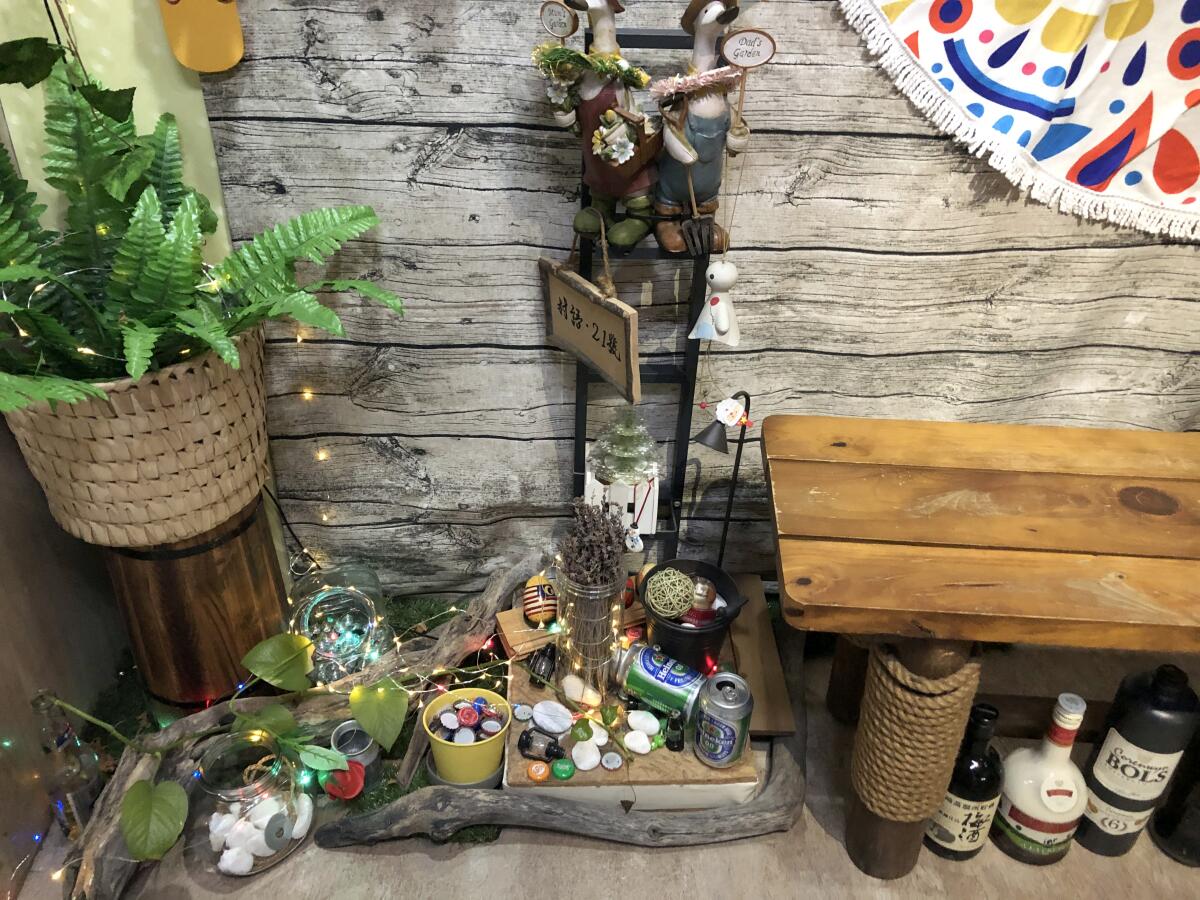
Camping in such spaces means no campfires and no staring at the stars. It also means shared shower stalls and children’s play areas.
But the current risk for COVID-19 in Taiwan is infinitesimal compared to the United States (with roughly 175,000 deaths, compared to the seven in Taiwan), resulting from a coordinated government strategy which bans foreign inbound travel, stresses full contact tracing and requires citizens returning home to undergo a strict 14-day quarantine.
“You go hiking or to the beach, and though those places are relatively safe, if you hang out together with other people there’s still danger,” said Huang Ching-tai, an infectious diseases department doctor at Chang Gung Memorial Hospital in Taiwan. “With camping, it’s your family, and those are people you can’t avoid contact with, so it’s fine.”
“And tents are spaced apart,” Huang added. “You can keep away from unknown people as much as possible.”
About 1,100 of Taiwan’s 2,000 campgrounds are fully or partly enclosed, including the building where Yeh brought her children. Most Taiwanese live in crowded flats, meaning no yards and making it impractical to set up tents in their own living spaces.
To get to the Ponponwu “campground,” the family drove an hour south from their apartment in rural Taiwan. After parking and taking the elevator, they were buzzed through the door.
Each of the three had their own tent — made from white canvas fitted over wood slats. Most of the total 11 tents fit one person each. A tiny padlock allows the canvas doors to be secured from the inside and a mattress fills the floor, with an electrical socket on a wooden back wall.
Double-paned windows in the office space surrounding all tents guaranteed quiet nights by keeping out street noise from the city of 2.8 million people. Lullaby music on a dulcimer soundtrack permeated the “grounds” from hidden speakers. Chatting inside tents was banned after lights-out.
A starry black sky was painted on a wall behind the site’s only portable domed tent of the sort an outdoor camper would use.
As if camping outdoors, Yeh, her son Yu Chung-chieh and daughter Yu Shan-chen hung up their clothes to air out, though the shirts hadn’t been washed. The children said their bedtime prayers cross-legged on the floor before switching off the lights and jumping inside their tents.
“The tent shape appeals to them, and they don’t care if it’s real or not,” Yeh said. At home, “they’re always complaining they’re bored.”
The key to their liking it: “I can’t see what they’re doing in there.”
In the last decade, the number of campers, inside and out, has roughly doubled across Taiwan, Wang said.
The surge indoors has taken place in part because Taiwanese like Japanese outdoor clothing brands and images of glamping in Yellowstone National Park, said Yuki Huang, chief marketing officer with Taipei-based travel agency KKday. “People want to try it out as a new kind of ambiance,” she said.
“They can get the sense of a tent, but you won’t get rained on,” said Peter Lin, head of the Topology Travel Agency in Taiwan.
With COVID-19 a fact of life, all campground operators check guests for signs of fever as they enter and have the option of requiring campers to wear face masks.
Covered campgrounds at the rougher end of the scale fasten a giant metal sheet to the tops of poles as a roof for multiple tents. Outdoor air courses through these structures but the rain stays out.
At the Dongshih Village Chief’s House, eight log cabins are shaped like triangular tents and 40 sites for tents including rentals sturdy enough to survive storms. The 2-year-old campground, with slides and a sandbox for children, has seen no dip in bookings this year despite a standstill in Taiwan’s hotel business because of the foreign tourist ban in place since mid-March.
“They think we’re spacious to start with, and nearby there are no homes, so there’s plenty of open space,” Dongshih sales representative Chen Hsueh-yueh said. Outdoor parking spaces separate the cabins and beds inside are 16.4 feet apart, a comfort when guests don’t know one another.
The total head count at the campground, indoor and outdoor combined, increased in the first four months of 2020 compared with the same period last year, Chen said.
At the higher end of covered camping, the National Museum of Marine Biology and Aquarium, located in a coastal national park, lets people throw down sleeping bags for a night in a private room under backlit fish tanks. A night costs $80. About 50,000 to 60,000 people spend the night each year, an aquarium publicist said
Ten of Taiwan’s enclosed campgrounds are as tightly sealed as Ponponwu, Wang said.
Ponponwu, centrally located in Kaohsiung, provides the tent, the mattress, Wi-Fi, a coin-operated washing machine and shower rooms. Central air conditioning keeps the whole floor at 73 degrees. A night’s stay costs $13.30 to $19.90. Occupancy in February and March, when the Taiwanese started to worry about the coronavirus, varied little from the same months of 2019, co-owner Fang Xiao-Q said. It has since closed for renovations.
The campground gets enough attention that it has applied for patents to protect its floor plan and tent designs, Fang said. The idea is to offer economical, private living space without copying the capsule hotels popular in Japan.
“People who like the outdoors won’t come here, but the ones who like peace will, the ones who don’t want to be bothered by others,” said Fang, who has never camped outdoors herself. “When you go camping outside, you’ve got to prepare a big pack and small pack as well as ways to prevent wind, sun, rain and mosquitoes.”
More to Read
Start your day right
Sign up for Essential California for news, features and recommendations from the L.A. Times and beyond in your inbox six days a week.
You may occasionally receive promotional content from the Los Angeles Times.
